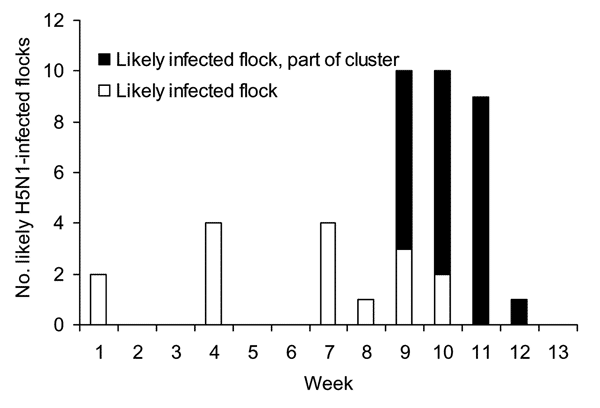Volume 12, Number 10—October 2006
Research
Low Frequency of Poultry-to-Human H5N1 Transmission, Southern Cambodia, 2005
Figure 2

Figure 2. Infected flocks detected by week of reporting period, January 1–March 26, 2005, southern Cambodia. Cluster refers to households within the circle on Figure 1.
Page created: November 10, 2011
Page updated: November 10, 2011
Page reviewed: November 10, 2011
The conclusions, findings, and opinions expressed by authors contributing to this journal do not necessarily reflect the official position of the U.S. Department of Health and Human Services, the Public Health Service, the Centers for Disease Control and Prevention, or the authors' affiliated institutions. Use of trade names is for identification only and does not imply endorsement by any of the groups named above.